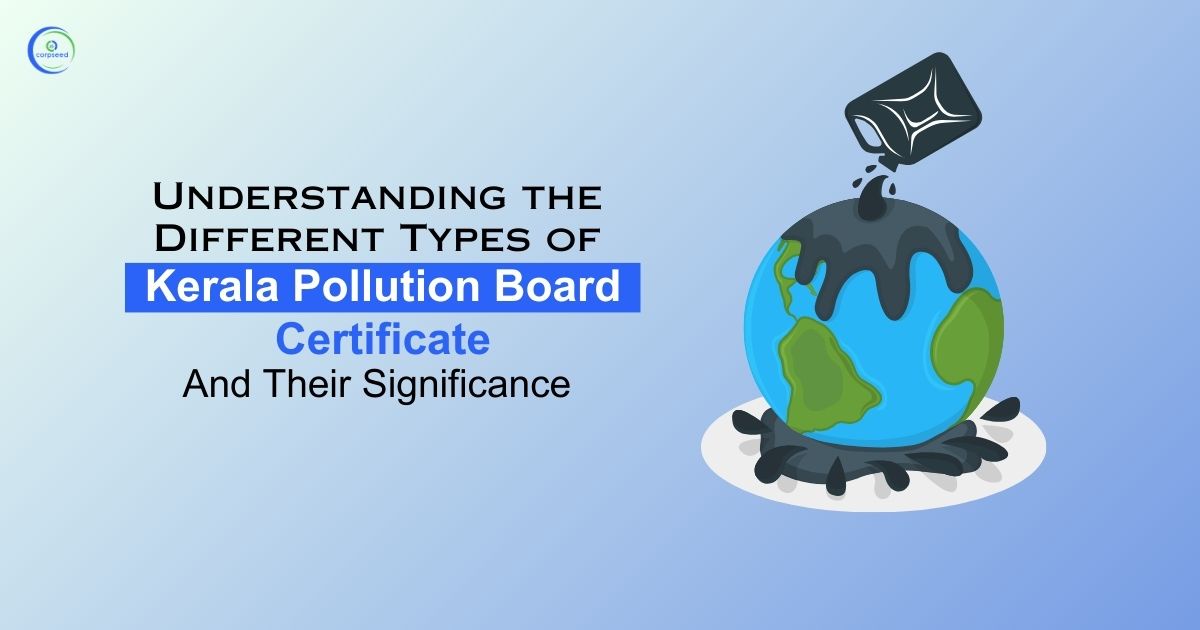Introduction: Kerala Pollution Control Board
The Kerala Pollution Control Board (KSPCB) plays a pivotal role in regulating and maintaining environmental standards across the state. One of its primary functions is the issuance of various certificates to industries, ensuring compliance with environmental norms. In this article, we will delve into the different types of KSPCB certificate, their significance, and the crucial role they play in environmental monitoring.
Types of Kerala Pollution Board Certificate
Consent to Establish (CTE)
- The Consent to Establish certificate is mandatory for any industry planning to set up operations in Kerala. It is granted after a thorough assessment of the environmental impact of the proposed project. This certificate signifies that the industry has adhered to the necessary environmental guidelines and is allowed to commence its establishment.
Consent to Operate (CTO)
- Once the industry is established, it must obtain the Consent to Operate certificate from the KSPCB. This certificate ensures that the industry is operating within the prescribed pollution control norms. It is usually granted for a specific period and needs to be renewed periodically.
Authorization under Hazardous Waste Management Rules
- Industries dealing with hazardous substances are required to obtain authorization from the KSPCB under the Hazardous Waste Management Rules. This certificate ensures that the industry is managing and disposing of hazardous waste in an environmentally responsible manner.
Water Cess
- The Water Cess certificate is essential for industries discharging effluents into water bodies. It involves the payment of a cess based on the quantity and quality of effluents released. This certificate is crucial for monitoring water pollution levels and encouraging industries to adopt cleaner practices.
Importance of KSPCB Certificates for Industries
- Legal Compliance: KSPCB certificates are mandatory for industries to operate legally in Kerala. Non-compliance can lead to fines, closure, or legal actions. Obtaining and maintaining these certificates demonstrate a commitment to environmental responsibility.
- Environmental Impact Assessment: The issuance of certificates involves a thorough environmental impact assessment of industrial activities. This ensures that industries adopt sustainable practices and minimize their ecological footprint.
- Community and Stakeholder Confidence: Industries with KSPCB certificates gain the trust of local communities and stakeholders. Certificates indicate a proactive approach towards environmental protection, fostering positive relationships with the community.
Role of KSPCB in Environmental Monitoring
- Regular Inspections: KSPCB conducts regular inspections of industries to ensure adherence to environmental norms. This proactive monitoring helps identify and rectify potential pollution sources promptly.
- Enforcement of Regulations: KSPCB enforces environmental regulations and takes necessary actions against non-compliant industries. This includes issuing warnings, imposing fines, or even recommending closure in extreme cases.
- Promotion of Sustainable Practices: The board actively promotes sustainable practices among industries, encouraging the adoption of eco-friendly technologies and waste management systems.
Validity Periods of Different Certificates
- CFE and CFO: These certificates are generally valid for a specific period, typically five years. Industries must renew them to continue operations.
- Hazardous Waste Authorization: The validity period varies and depends on the type and quantity of hazardous waste generated. Renewal is necessary to ensure ongoing compliance.
- Water Cess Consent: Similar to CFE and CFO, this certificate is typically valid for five years. Renewal is crucial for continuous authorization.
Conclusion
In conclusion, understanding the different types of Kerala Pollution Control Board certificates and their significance is paramount for industries operating in the state. These certificates not only fulfill legal obligations but also contribute to environmental conservation and sustainable development. The role of the KSPCB in monitoring and enforcing these standards ensures a balance between industrial growth and ecological preservation, ultimately fostering a healthier and more sustainable future for Kerala.


No comments yet